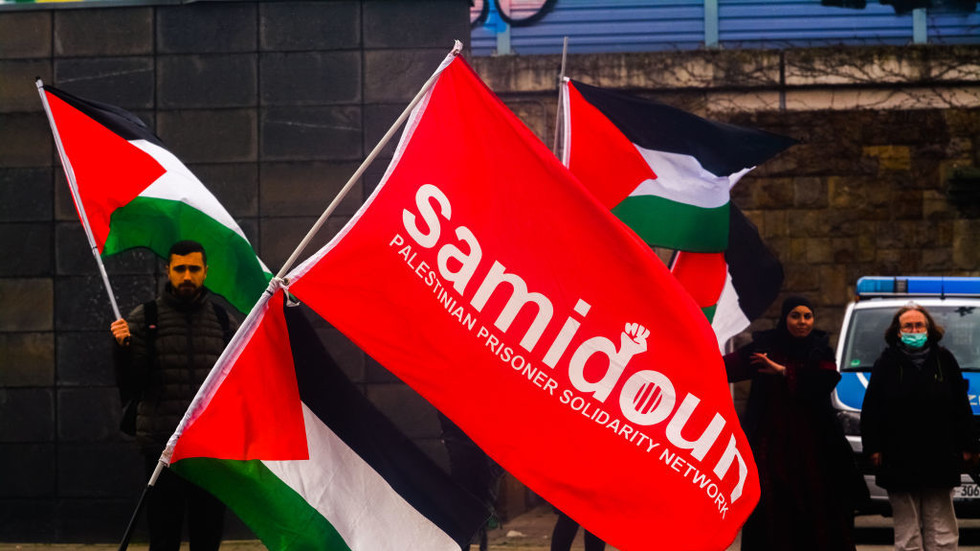The recent announcement by the United States regarding sanctions against the Palestinian Prisoner Solidarity Network, known as Samidoun, marks a significant development in the geopolitical landscape concerning Palestine and Israel. The US government, through the Treasury Department’s Office of Foreign Assets Control (OFAC), has classified Samidoun as a “sham charity,” declaring that it essentially serves as a fundraising front for the Popular Front for the Liberation of Palestine (PFLP), an organization previously designated as a terrorist group by both the US and Canada. Founded in 2011 following hunger strikes in Israeli prisons, Samidoun perceives itself as an international collective advocating for Palestinian prisoners and their rights. As a response to growing unrest and activism surrounding the Israeli-Palestinian conflict, particularly pro-Palestinian protests in Canada, the US and Canadian actions reflect a coordinated strategy against organizations perceived as supporting Palestinian resistance against Israel.
The OFAC’s designation asserts that Samidoun was established by the PFLP with the objective of overseeing and expanding its fundraising efforts in North America and Europe. In their statements, officials emphasized that the PFLP’s actions have included involvement in the violent escalation of tensions during the Israel-Hamas conflict, including attacks such as those occurring on October 7. This timing of the sanctions corresponds with a broader crackdown on groups that the US government views as facilitating or financing terrorism. Acting Under Secretary of the Treasury for Terrorism and Financial Intelligence, Bradley T. Smith, strongly decried such organizations, arguing that they disguise their operations as charitable fundraising while funneling resources to terrorist organizations instead, thus posing significant risks to security in the region.
Following these sanctions, the US Treasury has made it clear that all assets associated with the designated organizations and individuals within US jurisdiction have been frozen, and any further engagement with Samidoun could result in potential sanctions and criminal charges. The designation also extended to a Canadian national linked to the PFLP, highlighting an effort to disrupt perceived financial networks supporting extremist organizations. This amplified enforcement action signifies a tougher stance that the US is adopting against entities it determines to be undermining its foreign policy interests and contributing to ongoing violence.
The repercussions of these sanctions can extend beyond just financial implications; they might impact potential partnerships, collaborations, and fundraising efforts associated with pro-Palestinian activism. Samidoun, which has built a network of supporters globally, may struggle to sustain its operations in light of such tight constraints to financial resources and increased scrutiny. The narrative surrounding the organization has gained traction, particularly in the context of recent events marked by mass pro-Palestinian protests in Canada, which highlighted pervasive public support for Palestinian rights and led to the questioning of governmental policies towards these organizations.
Internationally, the actions taken by both the US and Canadian governments against Samidoun echo similar trends seen in other countries. For instance, Germany recently imposed a ban on Samidoun, indicating a growing international consensus on limiting the activities of groups associated with the PFLP and perceived as promoting violence. The urgency of these sanctions corresponds to the recent tensions and heightened expressions of pro-Palestinian sentiment globally, further complicating the dynamics of international diplomacy regarding the Israeli-Palestinian conflict.
In summary, the US sanctions against the Palestinian Prisoner Solidarity Network underscore a concerted effort to clamp down on organizations that are seen as enabling or supporting terrorism, particularly those associated with the PFLP. With the backing of Canada and mirrored attempts in countries like Germany, the sanctions reflect deep-rooted geopolitical tensions that continue to shape the discourse around Palestinian activism while highlighting the complexities of international relations in the face of grassroots movements advocating for fundamental human rights. As activism evolves and resistance persists, the implications of these recent actions will continue to shape the landscape of support for Palestinian rights and the broader narrative surrounding the Israeli-Palestinian struggle.

